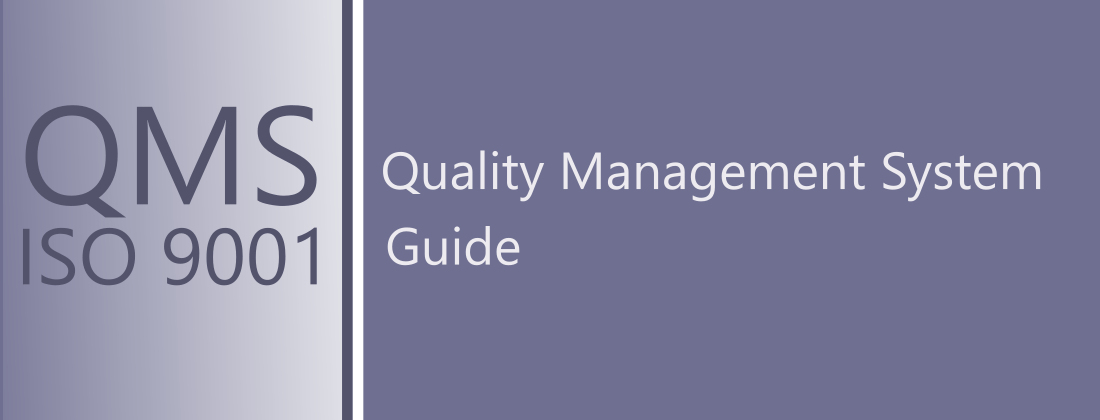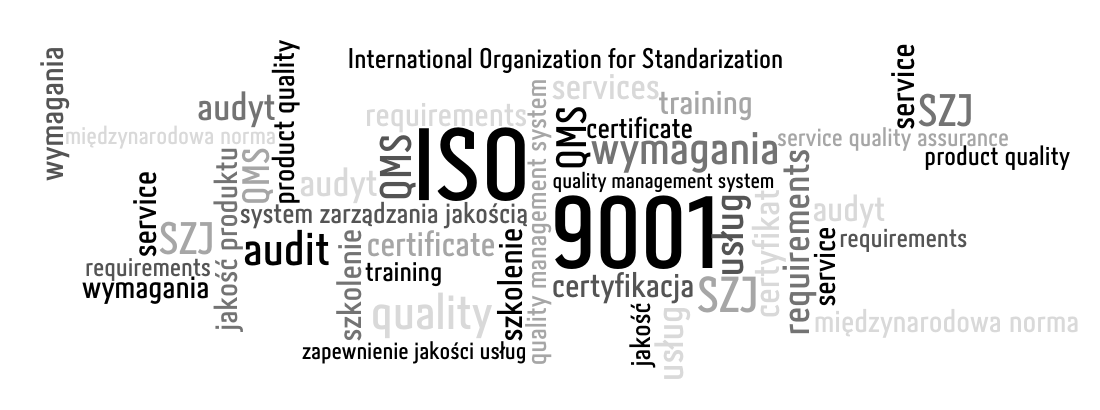ISO 9001 is a standard that specifies the requirements for a quality management system.
It helps companies and organizations to be more efficient and increase customer satisfaction.
ISO 9001 ISO 9001 has been published by the International Organization for Standardization. The 2015 edition of ISO 9001 replaced its 2008 predecessor. The Polish version of the standard has been marked as PN-EN ISO 9001: 2015.
See also:
ISO 9001 certificate
cost evaluation
The ISO 9001 standard defines the quality requirements. It helps companies and organizations to be more efficient and increase customer satisfaction.
The very content of the ISO 9001 standard contains the requirements of a quality management system based on seven key elements, such as:
- Customer focus
Meeting – and exceeding – customer needs is the primary focus of quality management and will contribute to the long-term success of your enterprise. It is important to not only attract but also retain the confidence of your customers,
so adapting to their future needs is key. - Leadership
Having a unified direction or mission that comes from strong leadership is essential to ensure that everyone in the organization understands what you are trying to achieve. - Engagement of people
Creating value for your customers will be easier if you have competent, empowered and engaged people at all levels of
your business or organization. - Process approach
Understanding activities as processes that link together and function as a system helps achieve more consistent and predictable results. People, teams and processes do not exist in a vacuum and ensuring everyone is familiar with the organization’s activities and how they fit together will ultimately improve efficiency. - Improvement
Successful organizations have an ongoing focus on improvement. Reacting to changes in the internal and external environment is necessary if you want to continue to deliver value for your customers. This is of paramount importance today when conditions evolve so quickly. - Evidence-based decision making
Making decisions is never easy and naturally involves a degree of uncertainty, but ensuring your decisions are based on the analysis and evaluation of data is more likely to produce the desired result. - Relationship management
See also:
Szkolenia ISO 9001
Today’s businesses and organizations do not work in a vacuum. Identifying the important relationships you have with interested parties such as your suppliers – and setting out a plan to manage them – will drive sustained success.
ISO 9001 is the most recognized ISO standard for quality, but there are many other standards that can help you take full advantage of your quality management system and put customer satisfaction at the center of your business. The most important standards supplementing the ISO 9001 standard are:
contains detailed explanations of the seven quality management principles in addition to many helpful tips on how to ensure these are reflected in the way you work. It also contains many of the terms and definitions used in ISO 9001 and constitutes a useful companion document to help you build a successful quality management system.
provides guidance on how to achieve sustained success with your quality management system.
gives guidance for performing both internal and external audits to ISO 9001. Good internal audits will help ensure your quality management system delivers on promise and will get you ready for an external audit, should you decide to seek third-party certification.




